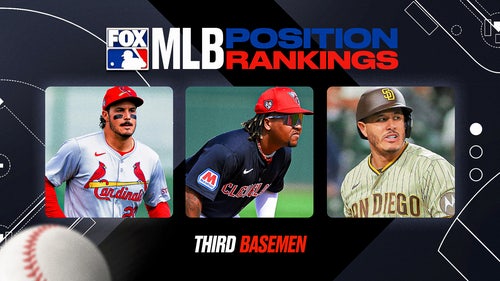
Boston Red Sox: Pay me now or pay me later

The Boston Red Sox have a payroll that is among the highest in baseball and with young players it may become significantly higher in a few seasons.
Pay me now or pay me later was a catchy commercial slogan designed to stress the importance of preventive maintenance with your vehicle – an easy to understand line that ignoring the basics had consequences. Those could be costly consequences.
The same applies to baseball.
The salaries in baseball have exploded exponentially over the years to where just the minimum wage is $507,000 a season and with the new Collective Bargaining Agreement (CBA) that may escalate to $600, 000 per season. Toss in pension and health care benefits and payroll is a costly item.
A driver has certainly been the advent of free agency, but don’t exclude arbitration that has seriously affected salary structure. Teams are often willing to take a significant fiscal risk and buy up arbitration and free agency years. The Tampa Bay Rays took such a risk with Matt Moore only to see injuries cause some significant dead money for a team that runs on a – in baseball terms – a shoestring budget.
“Loyal? I’m the most loyal player money can buy.”
– Dodgers, Astros, Brewers, A’s & Angels pitcher Don Sutton
Other teams have had mixed results in applying the same business model and that could go back once more to the Rays and the signing of Evan Longoria. Longoria has certainly earned his money and, in baseball terms, his contract has been a plus for the Rays. That is all a risk and reward situation; however, what is abundantly clear is that as a player matures in service time his value increases dramatically, if the numbers continue an upwards spiral. The Red Sox have young and quite successful talent core, and that will soon result in an expanding payroll.
Mookie Betts will most certainly get a substantial raise if he chooses to play out his years in Boston when his free agency contract could be easily over $25 million per season. That – of course – is dependent upon Betts replicating his 2016 performance in the following years. The Red Sox can certainly afford Betts, but what about Xander Bogaerts?
Bogaerts is represented by agent Scott Boras, whom fans despise, players love and general managers fear. A hard line negotiator who will certainly expect another huge payday for a talented home run hitting shortstop. Maybe in the range of or higher than Troy Tulowitzki and that could be a bargain. The payday will be exceptional and this will certainly not be a pay me now since Boras rarely operates that way.
“I love being the highest paid player in the game.”
– Yankees third baseman Alex Rodriguez
The Red Sox youth comes with a price and eventually Andrew Benintendi will cash in. Now Benintendi is still a rookie, but looking at his potential talent level his future is bright and no doubt will be costly. And like the aforementioned Betts and Bogaerts he will be in his prime baseball years when he gets his opportunity at the Golden Ticket.
Jackie Bradley played for $546,000 in 2016 and is now classified as a “Super 2” under the CBA. The intricacies of the Super 2 can be found here, but the quick read is simple – cha-ching! Bradley is also represented by Boras and I fully expect him to test the free-agent market.
The Red Sox will face a financial conundrum when contracts start to become an issue with younger players and the four listed are just the surface of talent that will have to be financially satisfied, then are the most prominent based on their talent, youth, and desirability from other organizations.
The Red Sox apparently have chosen the pay me later approach and that could result in a fiscal version of “Sophia’s Choice” as the Red Sox may have to part ways with a player or two that we now have in the stable. For 2017 the team may be a borderline luxury tax, but when the pantheon of youth is due to a payday that could skyrocket.
The internal optimist would say that replacement parts can be found within a successful farm system, but that could be a path that will be a dead end. Just how many pitchers have been developed in the last ten years?
The Red Sox have estimates of payroll obligations that probably extend several years. They are sharp operators and that is just a standard procedure for a labor-intensive business like baseball. Estimating salary obligations is a chore that I would certainly find challenging, but just where the cutoff for the money pit rests is one that time will determine.
The Red Sox could do what they have a tendency to do and fill holes with free agents and that just goes back to paying later. The next few years will be interesting to watch from an on field and off field angle.
Sources: Cot’s Contracts.
More from BoSox Injection
This article originally appeared on








